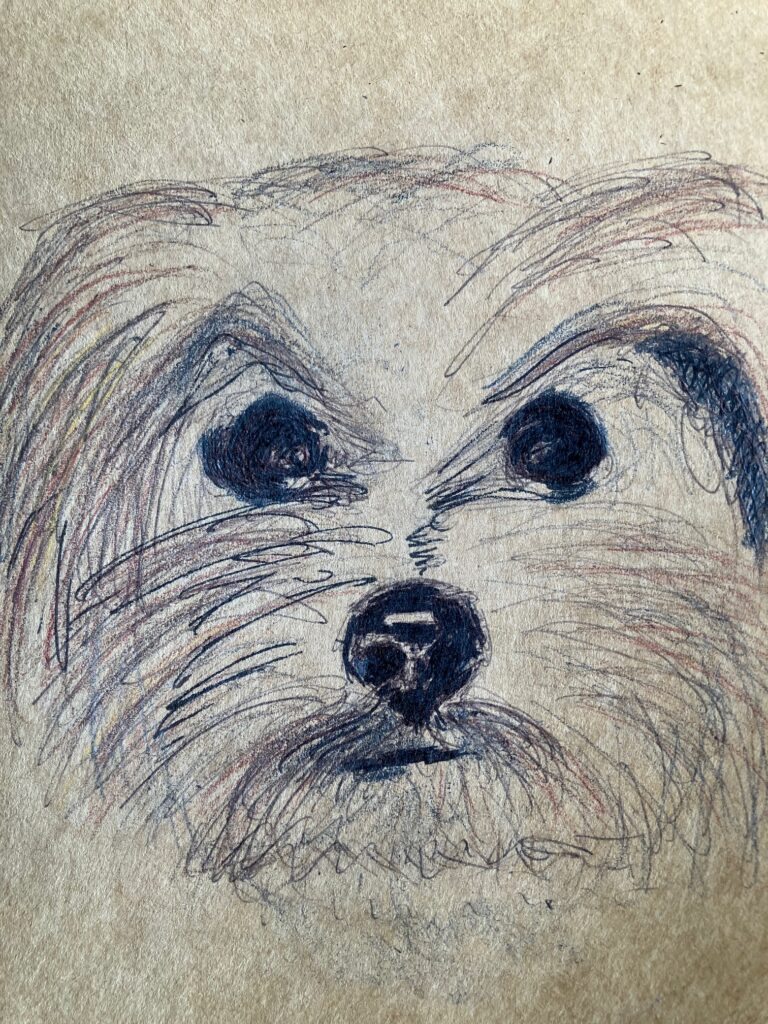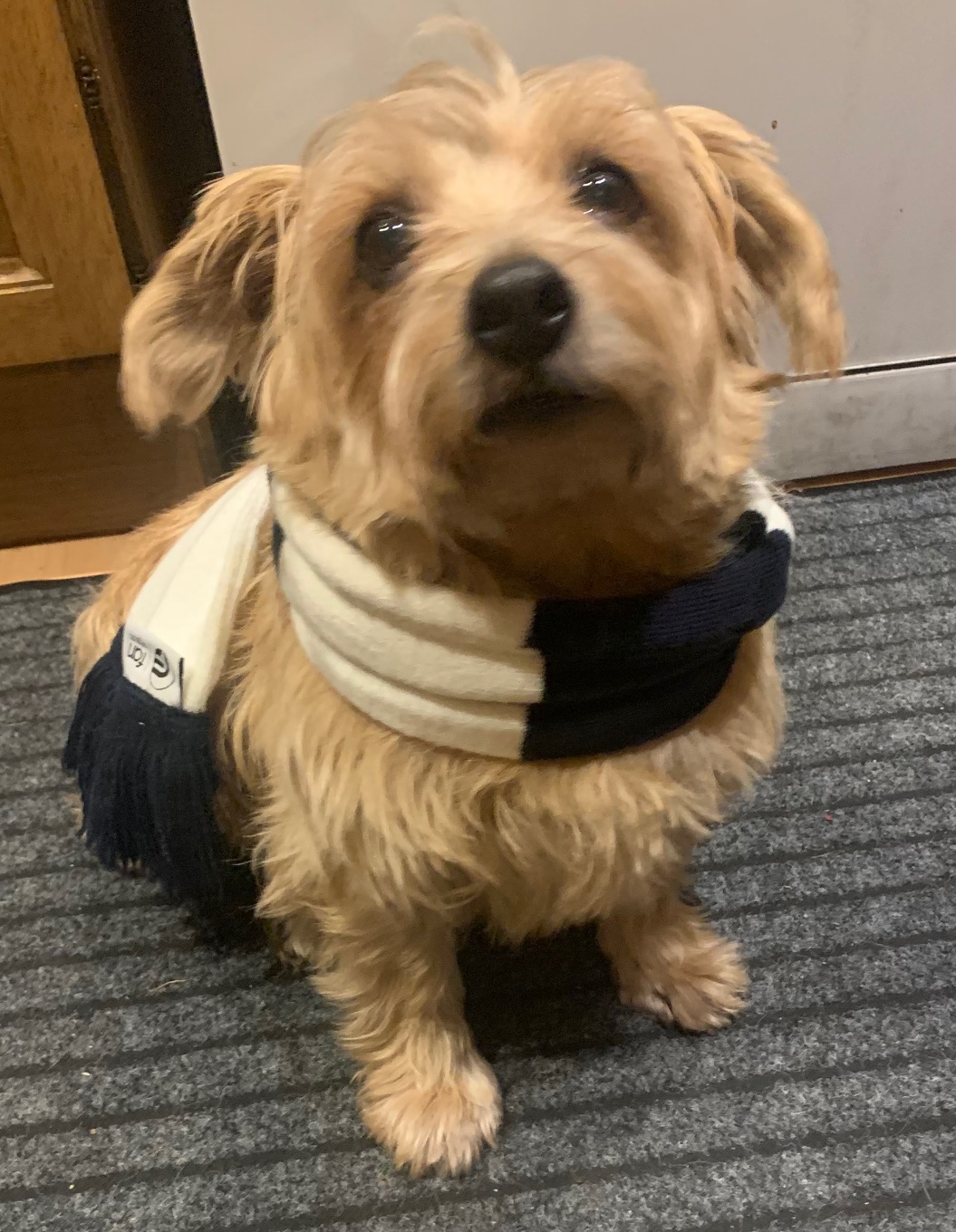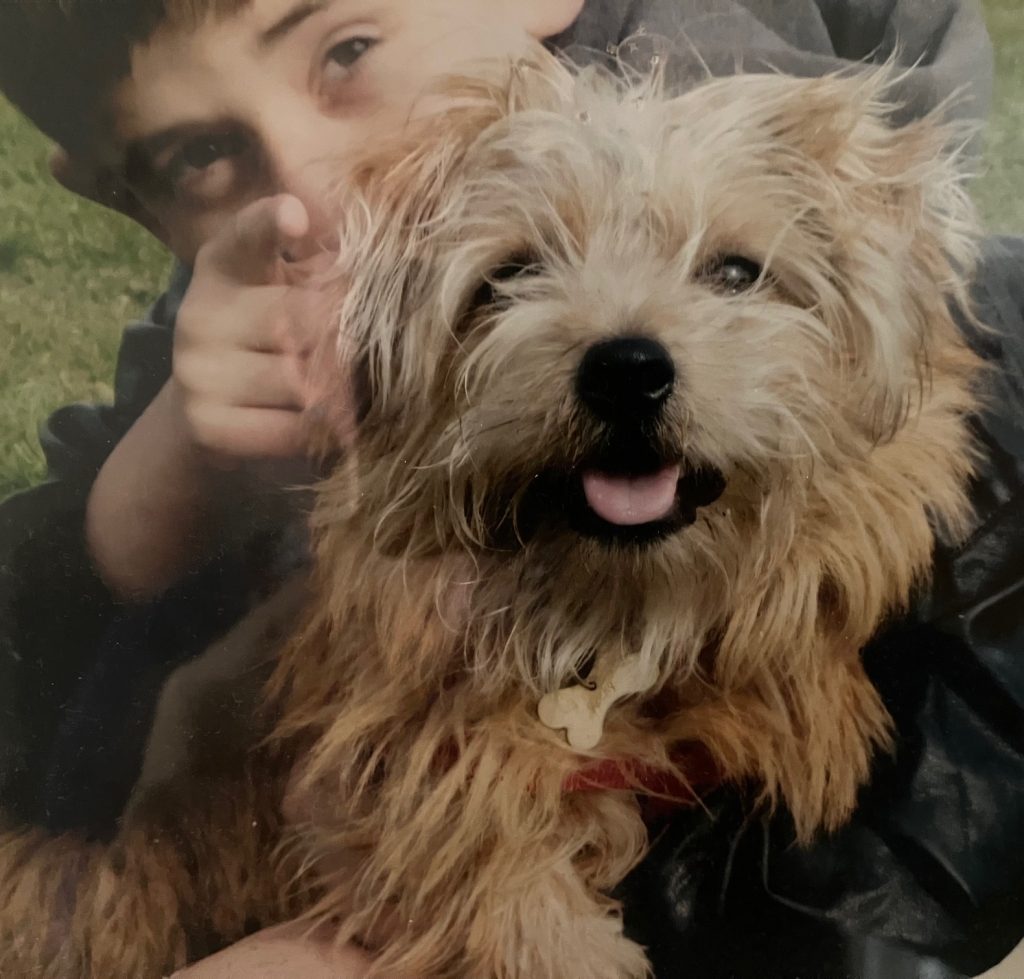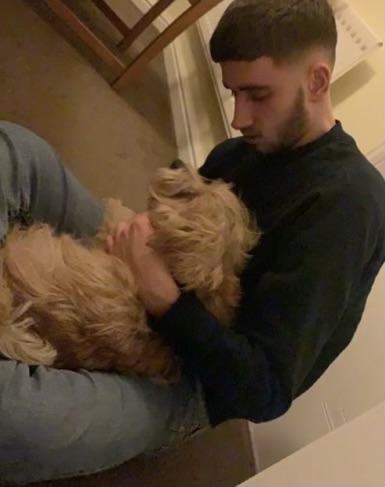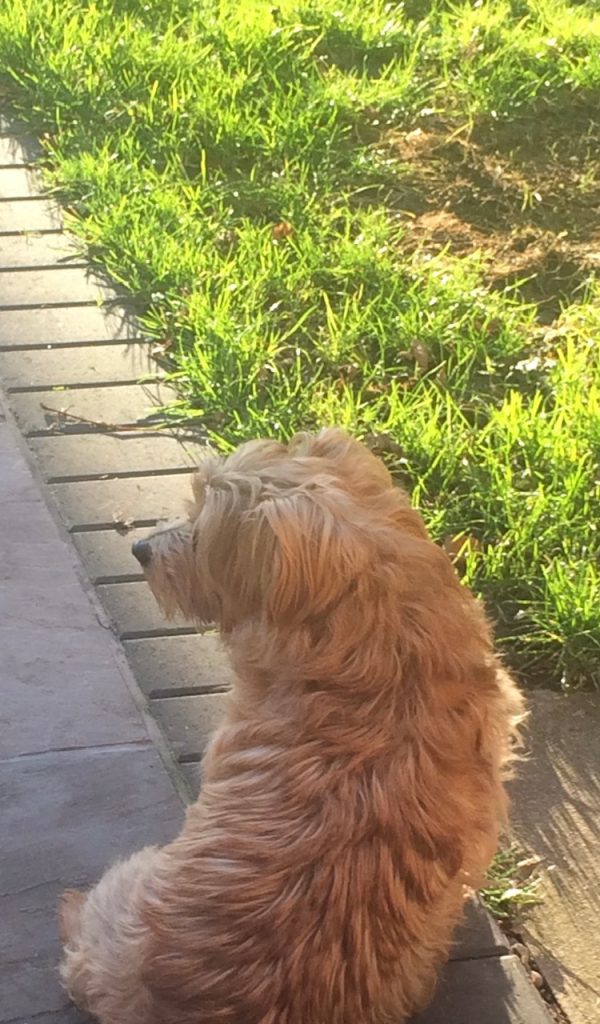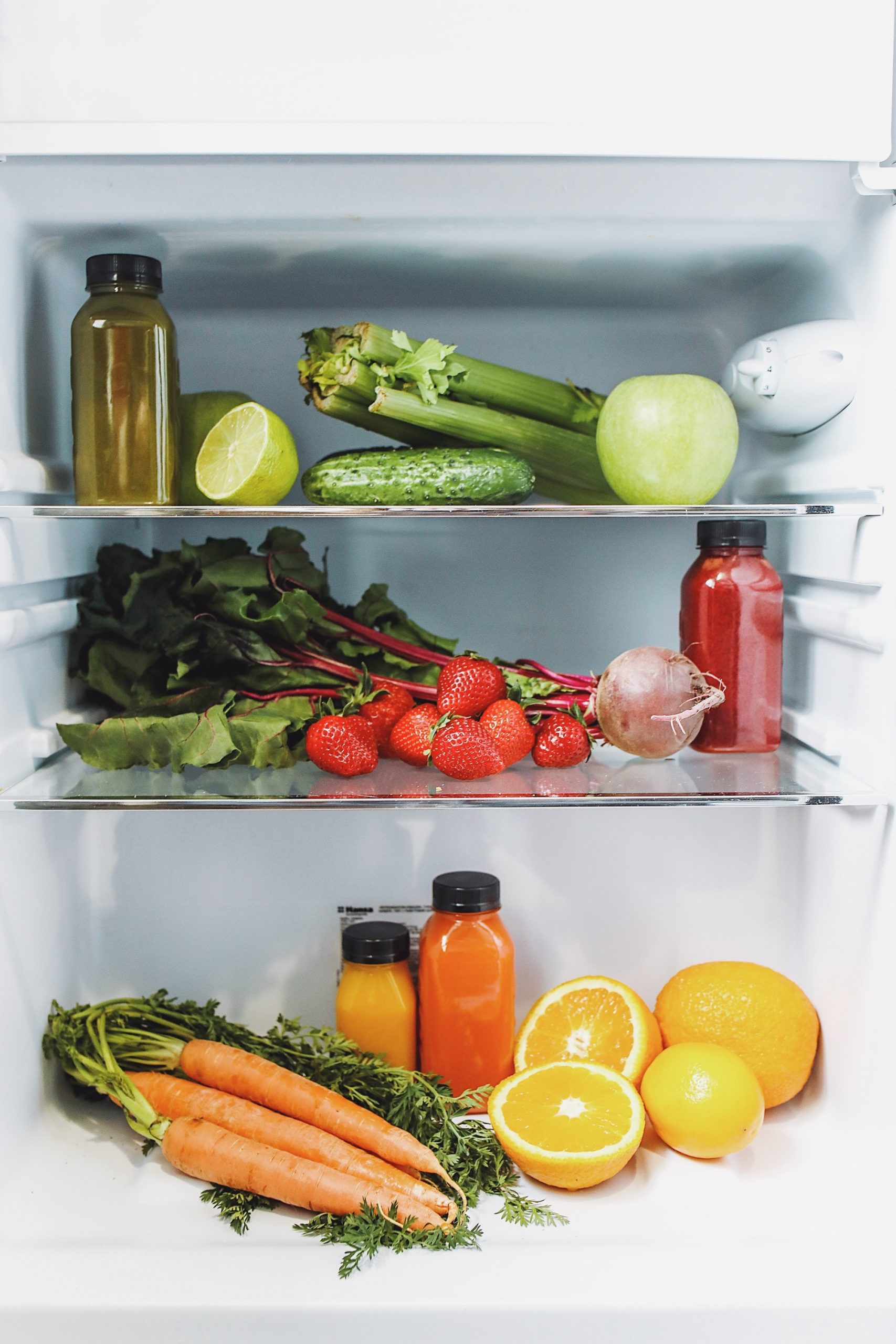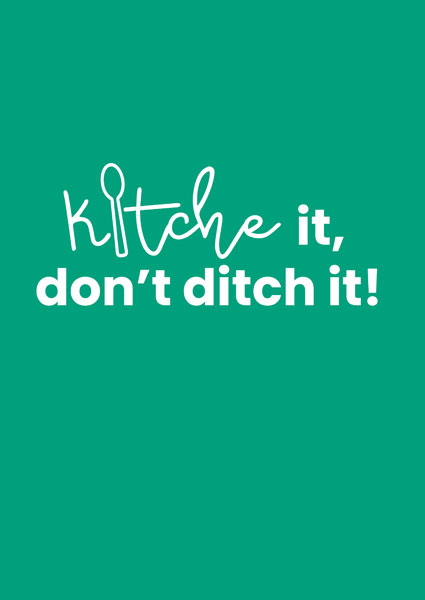This time last year we marked the first anniversary of our dog’s death. I wrote a blog at the time (below) about how hard it is to lose your animal best friend, and how people deal in different ways with their pet’s remains.
Since then, people have kept asking us when we’re getting another dog, and we still don’t know when – or if.
So now we’ve been without Rocky for two years. Some people get another dog straight away, others decide they can never go through that loss again.
Rocky was my first dog; I used to be one of those people who didn’t understand and I’m ashamed to say must have been useless when people around me were grieving for their dogs.
I’m drawn to hearing about other people’s experiences. I read a very moving article by James Middleton, brother of the Princess of Wales, about the loss of his therapy dog Ella, who had helped him to cope with suicidal depression. Dog trainer Graeme Hall, the star of Channel 5’s Dogs Behaving (Very) Badly, wrote about the loss of a beloved dog, saying he struggled so badly he now realises he should have had therapy at the time.
I also read about a book that has become a surprise word-of-mouth bestseller in France, about a teacher’s journey through grief following his dog’s death (His Smell After the Rain). The book’s author, Cedric Sapin-Defour, says he wrote it because he wanted to state plainly his love for his dog, Ubac, without feeling ridiculous. The English translation is due out later this year, but I found a translated paragraph in the online magazine The Connexion, which describes how Ubac ‘recalibrates the atmosphere to make it better. His mere presence is a blessing. He swallows all the rancour, and, as if filtering it through an invisible gill, releases joy. Those who aren’t used to dogs, surprised to be feeling suddenly so much better, must wonder what has imperceptibly loosened in their life.’ This is such a wonderful way of describing how dogs make life better. The change is real, we don’t just imagine it.
For Christmas my husband got me a book – Keira and Me – by the TV Supervet, Noel Fitzpatrick, about the loss of his border terrier Keira. He expresses something that all animal lovers understand when he says, ‘People who have never cried in their lives despite all manner of crises, cry when the animal friend they love is in pain. As one man who wept in my arms recently said to me, in reference to the dog he loved, ‘She unlocked a part of my heart I didn’t even know existed. ‘
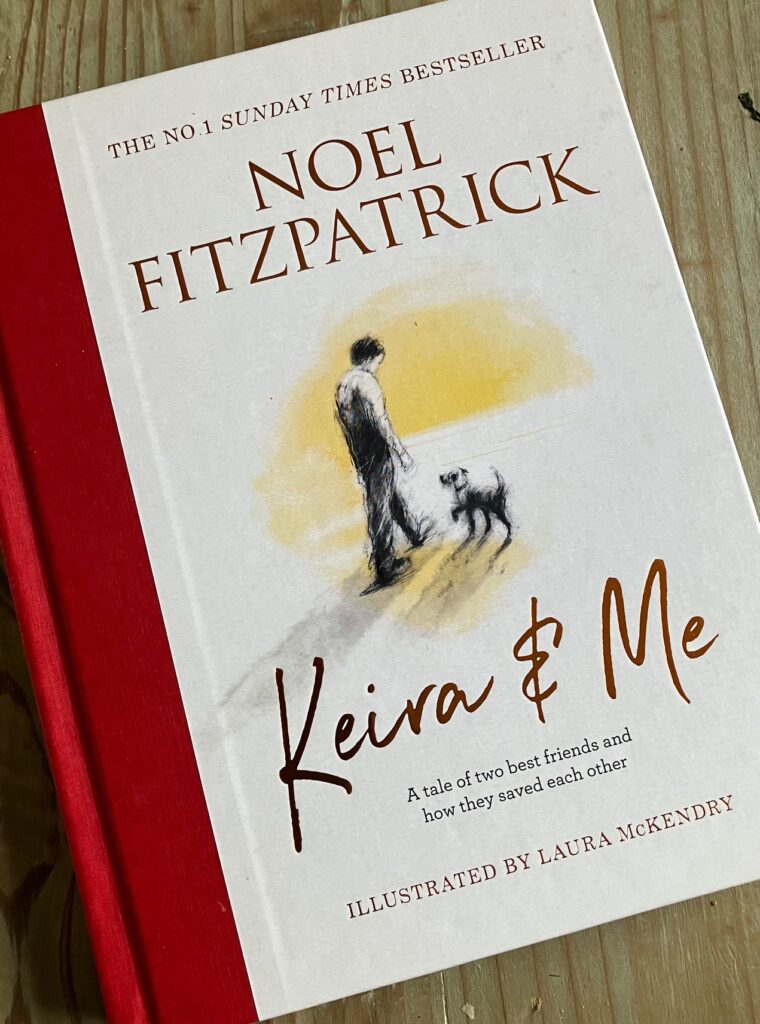
When we lost Rocky, his vet said to us, ‘Perhaps your next dog will find you.’ I liked this idea, it felt like we wouldn’t have to make an actual decision. I’ve spent the last two years waiting for our next dog to find us. In my mind it would be like a film, with us discovering a puppy left on our doorstep, or finding one that’s been abandoned in the park. But it hasn’t happened yet.
My husband wanted to wait a decent length of time so he wouldn’t feel somehow disloyal to Rocky, but he is now prepared to take the plunge again and it’s me who’s hesitating. I wonder whether if we wait too long, we might pass a point of no return.
On our pointless human-only walks, my husband never notices people, only their canine companions. He rushes up to every dog we see trying to befriend them. I call him a dog botherer. I, on the other hand, avoid Instagram because of course it knows I love dogs, so I’m inundated with them.
I argue that getting another dog is easier for my husband because he won’t have the job of dog-training. It quickly became obvious when we got Rocky that despite my total lack of experience, I would have to be the trainer in the house. My husband would always give Rocky anything he wanted after resisting for all of a nano-second. Rocky would glance over at me – I swear he could roll his eyes – as if to say, What a pushover!
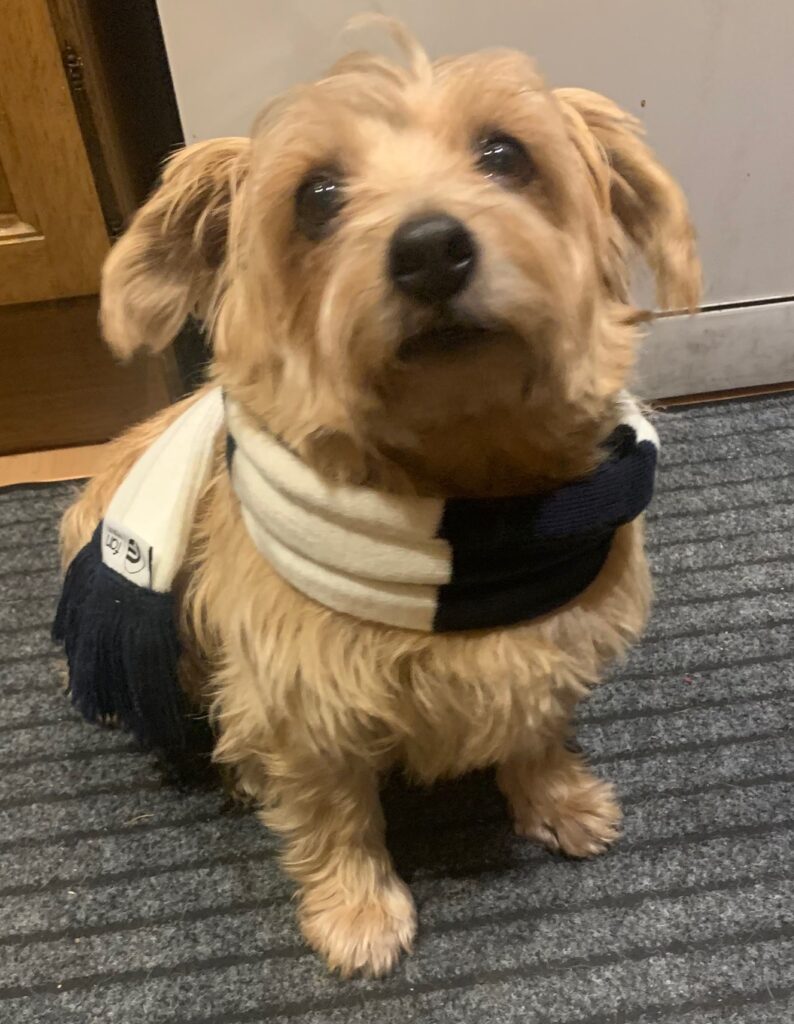
At mealtimes, Rocky always left me in peace while begging constantly at my husband’s feet, betraying the fact that Dad fed him scraps when my back was turned. Dog training is time-consuming but essential. You must also be prepared to change your life so that your dog’s needs are met, and you need back-up care too. When we got Rocky we had three children living at home so back-up was usually available. Our sons promise us they would always be available to help out with a new dog-brother, but would they really, or would it be like loading the dishwasher – always somebody else’s turn?
Our dogless lives have become easier in a lot of ways but smaller too. Anxiety and irritability seem closer to the surface, and we certainly don’t laugh as much as we used to. The house was full of laughter with Rocky. Nothing makes me laugh quite as much as his performance every morning when he would swagger proudly across the room with one of my bed socks dangling from his mouth. He would deposit this sock under the dining table, looking for all the world as if he had cunningly hunted and killed a fluffy pink rat. He did this with a pretend casual air, but it was really just a big show to impress us, to prove he was a natural born killer – of bed socks. Ah yes, as Sapin-Defour says – the joy….
Do dogs make us better people? I’m sure they do. There’s a quote that I love – ‘Be the person your dog thinks you are.’ How much better the world would be if we could!
When we lost Rocky, people reached out to us and it really did help to know that they knew he wasn’t ‘just a dog’. There’s a fear that you’re not allowed real grief because it wasn’t a human being that died. I was moved when a friend who has a fear of dogs came round with flowers. I’d always kept Rocky away from her, respecting her fear. But she knew how I was feeling; she remembered how she’d felt as a teenager when she lost her pet cat.
Dogs have silent wisdom, they know stuff. They know that sometimes you just have to wait till things get better, and they wait right alongside you. Rocky used to pick up on every emotion and sit out the bad ones with us. You can relax with a dog, knowing they will never say the wrong thing or make you feel bad about feeling bad. It’s why they’re so good as comfort animals for children and adults who are struggling to cope with this world. Dogs don’t try to hurry you along, they let you go at your own pace – unless it’s dinnertime. And sometimes that’s what you need too – to be brought back down to earth (and food).
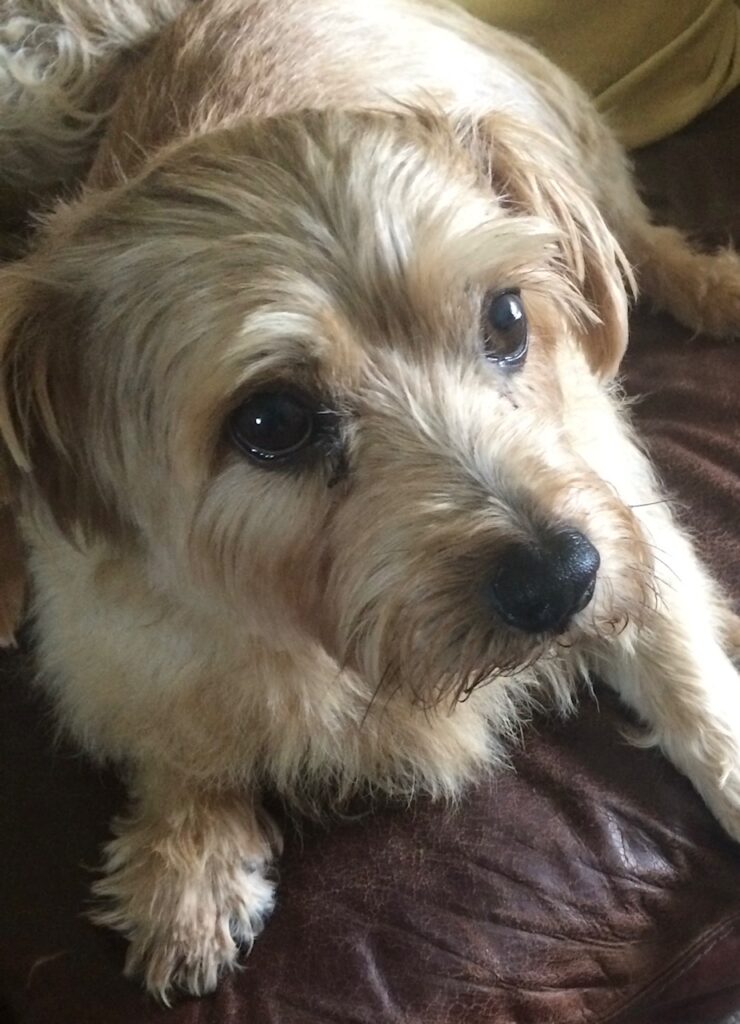
Shortly after Rocky died, I bumped into an acquaintance I hadn’t seen in over 10 years. I had no energy for small talk and just came straight out with ‘Our dog’s just died.’ He immediately empathised and advised me to get another one straight away, as he had done. This reminded me of a friend who, on the very day that his cat died went out and bought another black cat identical to the one he’d just lost. He even gave it the same name. This struck me at the time as a futile attempt to leapfrog grief – but what do I know? I’ve become a person who moves my dog’s ashes around the room so he doesn’t get bored with the same view.
When people decide they’ll never get another dog it’s because they can’t face the grief again. This is the thing – unless you’re elderly when you get a dog, you know you will outlive them. You are voluntarily entering into a pact that will end with your heart breaking in around 10 years’ time.
It makes you wonder why we do it to ourselves. But we know why. Despite everything, it’s worth it. And it was. It really was.
Julie
Read more about Rocky and the different ways that people deal with their pet’s remains – including composting – here.
